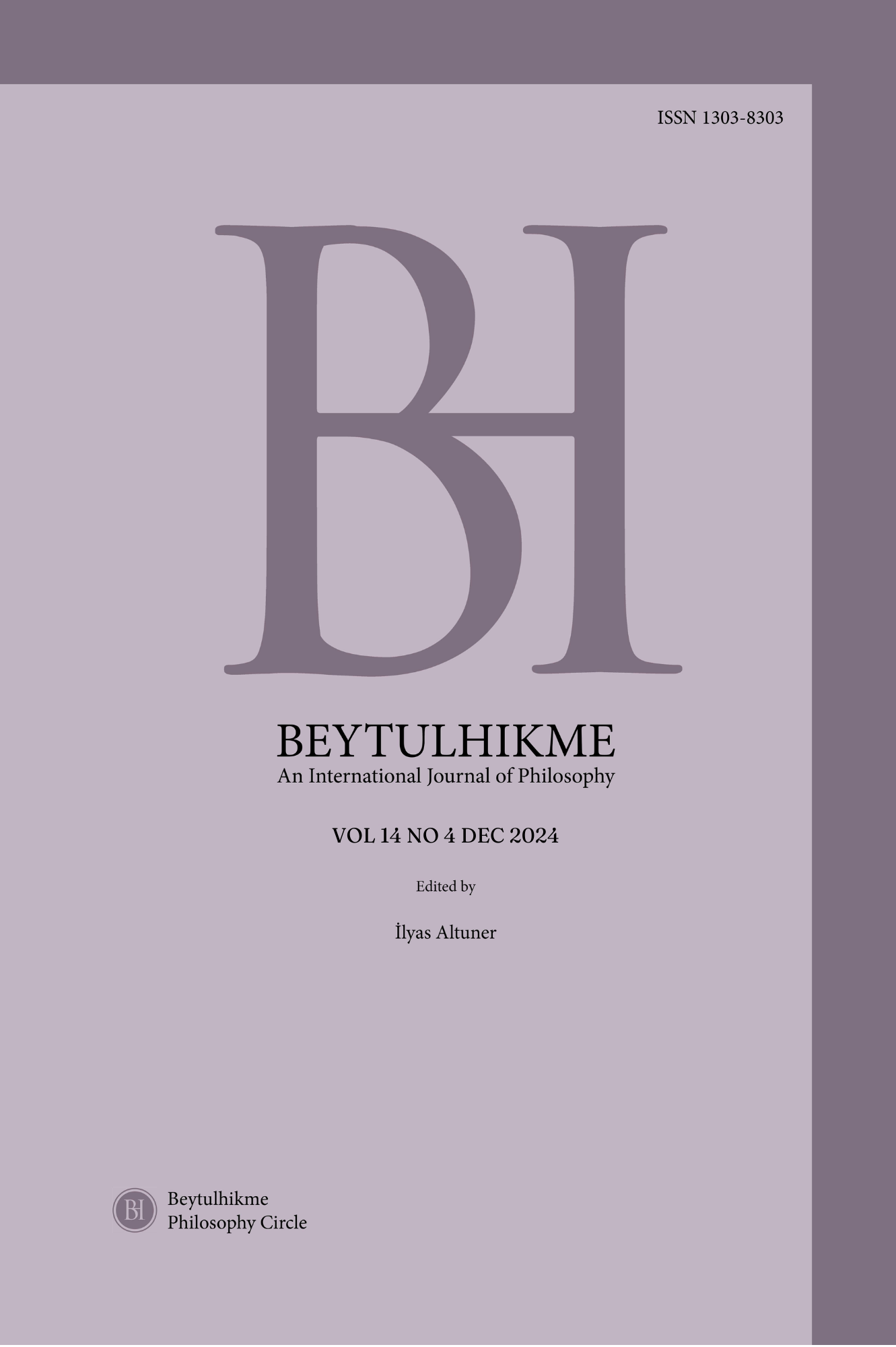Author :
Abstract
Bu makale, bilme ve tanıma bilişsel süreçleri arasındaki ayrımı ve ilişkiyi felsefi, psikolojik ve dini perspektiflerden incelemektedir. Tanımak sezgisel farkındalık, temel özelliklerin içgüdüsel olarak kavranması anlamına gelirken, bilmek deneyim ve analiz yoluyla daha derin kavramsal anlayışı içerir. Bu araştırma Platon'un anamnesis'i gibi felsefi teorilerden ve fitrah ve sensus divinitatis gibi teolojik kavramlardan yararlanmaktadır. Bu süreçlerin ahlaki farkındalık ve entelektüel gelişimi şekillendirmede birbirlerini nasıl tamamladıkları incelenmekte, bilginin edinilmesi ve doğrulanmasının anlaşılmasında hem ampirik hem de mantıksal yapıların rolü vurgulanmaktadır. Analiz, bilme ve tanımanın insan bilişinin iç içe geçmiş bileşenleri olduğunu ve hem varoluşsal anlayışı hem de ahlaki yargıların geçerliliğini etkilediğini savunmaktadır.
Keywords
Abstract
The article presents a distinction between the cognitive processes of knowing and recognizing from a variety of philosophical, psychological, and religious perspectives. The term "recognition" is used to describe an intuitive awareness or instinctive grasp of fundamental properties, whereas the term "knowledge" is used to denote a more profound conceptual understanding that emerges from experience and analysis. This research draws upon philosophical theories such as Plato's anamnesis and theological concepts such as fitrah and sensus divinitatis. This article examines the ways in which these processes complement each other in shaping moral awareness and intellectual development. It emphasizes the role of both empirical and logical structures in understanding the acquisition and verification of knowledge. The analysis posits that knowing and recognition are inextricably linked components of human cognition, and that both play a role in existential understanding and the validity of moral judgments.





